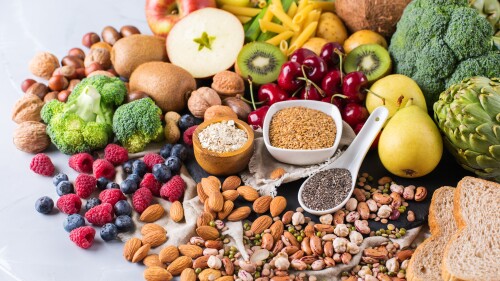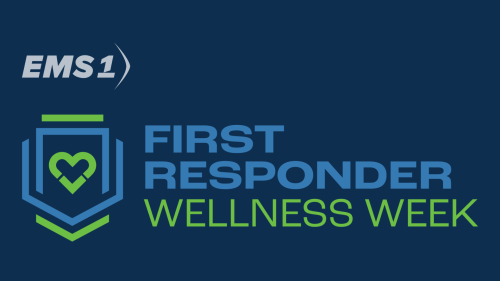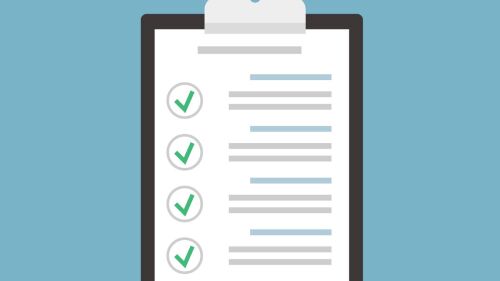By Gina Matsoukas | Wealth of Geeks
Associated Press
According to the American Heart Association, firefighters and police officers have about a 30 to 70 times higher risk of sudden cardiac death during stressful situations than the average American. This is the leading cause of on-duty deaths for firefighters — and the more fires they fight, the higher their risk becomes.
Besides the stress first responders deal with every day, it’s often difficult for them to eat a healthy diet while on duty, which contributes to their cardiovascular issues. Many first responders also have erratic on-duty sleep schedules, compounding the problem.
Unhealthy Habits
Firefighting is a physically demanding job. Firefighters run up stairs carrying hoses with SCBA tanks strapped to their backs. They have to maintain a certain level of fitness. Still, the stressors of the profession, as well as breathing smoke and chemicals, take a toll on their bodies.
Police officers are also subject to the dangers of their profession and have similar fractured sleep schedules. Some work alternating shifts and, depending on their assignment, can be called out at all hours to deal with a homicide or other violent crimes. They may not get enough rest when they’re at home since many want to spend time with their families.
One stereotype of fire stations is that someone is always cooking delicious food. While this may be true, much of that food may not be as healthy as it could be. Because of their late-night hours, everyone knows the stereotype of police officers downing coffee and donuts.
The fact is, police officers may have to eat more fast food than they normally would — otherwise, they may not get to eat at all, creating more problems. Fast food doesn’t take long to eat in case they get a call.
Firefighters and emergency medical technicians (EMTs) appear to have more free time, but they also may have to eat quickly or, more likely, abandon a meal because of an urgent call.
In an ideal world, first responders can sign out for meal breaks, but if something major happens, like a multi-vehicle wreck or a significant fire, it may be all hands on deck to respond, break or no break.
It doesn’t help their waistlines when well-meaning groups send goodies to the police and fire stations or to the EMT offices, especially around the holidays. It’s tough to say no to homemade cupcakes or cookies, particularly when they’re thank-you gifts.
First responders also see the worst of humanity: violence, drug abuse, domestic situations, child abuse, etc. These situations place them under a great deal of mental and emotional stress. They may not know how to deal with the stress, or they bottle it up, compartmentalizing their life, sometimes at the risk of their health. The stress also contributes to a higher cardiovascular risk.
Healthy Eating
Healthy eating is crucial to lowering the risk for many disorders, including cardiovascular disease. Most people know that eating more fruits and vegetables, lowering carbohydrate intake, and avoiding fried foods are good ways to change one’s eating habits. However, first responders may not have the time or facilities to prepare healthy foods. Third-shift officers and EMTs, in particular, may have to stop at an all-night fast food restaurant if they want a hot meal.
Cardiologist Dr. Elizabeth Klodas, Chief Medical Officer and founder of Step One Foods says, “…when it comes to nutrition, you don’t need to change everything to see a meaningful health improvement. Even small changes — so long as they are the right ones — can yield big results… Food is a comprehensive solution and, therefore, a very efficient approach to managing First Responder risk. Frankly, if I could get a patient or First Responder to do only one thing, it would be to improve [their] diet.”
The key is preparation. Experts who spoke with EMS1 offered tips, including packing healthy snacks before the shift. First responders can pack items like nuts, cheese cubes, dried fruit, and other healthy items that will hold through a 12-hour shift. These experts also advise first responders to drink plenty of water before, during, and after a shift to stay hydrated.
Alex Caspero, a registered dietitian with Delish Knowledge, recommends “Removing high intakes of fried foods, bacon, sausage, organ meats, butter, and ultra-processed foods and replacing them with whole grain pastas, fruits, fish, lean meat, soy, and olive oil can drastically reduce risk of coronary artery disease and therefore, reduce risk of a fatal cardiac event.”
Fire station crews can get together and plan healthier firehouse meals for their shift weeks. They can develop ideas for quick meals that don’t take much preparation, such as healthy wraps with lean meats, cheese, lettuce, and other vegetables; big dinner salads that add lean proteins; and healthy stews and soups for long-lasting energy.
Police officers can plan to eat before a late shift and have a healthy meal then. If day shift officers have to eat out, they can focus on restaurants that serve healthier food. For instance, a taco salad with fajita chicken, lettuce, tomatoes, shredded cheese, and sour cream from the local Mexican eatery is not a bad choice. The officers just need to limit their consumption of chips and salsa. They should also make a point of having healthy snacks in their patrol vehicles instead of candy bars or chips.
Healthy Coping
In addition to cultivating more healthy eating habits, first responders also need to learn to manage their stress levels. The Centers for Disease Control and Prevention (CDC) recommends several action steps first responders can take to help manage their stress levels. These steps include instituting a buddy system so responders can support and monitor each other, limiting shifts to no more than 12 hours, talking to others about their experiences, and getting enough sleep and exercise whenever possible.
Responders should also take advantage of any counseling services their departments offer. A mental health professional can help first responders work through their emotions, especially after a particularly traumatic event, like a natural disaster, where many lives were lost. This is crucial to helping responders avoid burnout or recognize they’re experiencing burnout and signs of secondary traumatic stress. They can then get the assistance they need before their mental situation becomes critical.
Community supporters can also help their first responders by taking healthy foods to the fire and police stations. Megan Lautz, writing for EMS1, suggests that those who want to express their gratitude to their local first responders can take healthy foods, including bagged salads, fruit, peanut butter, vegetable trays, packaged meats, and powdered electrolytes. They can also give coffee, condiments like ketchup and mustard, and spice blends for the firehouse cook.
This article was produced by Media Decision and syndicated by Wealth of Geeks.








